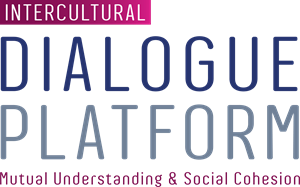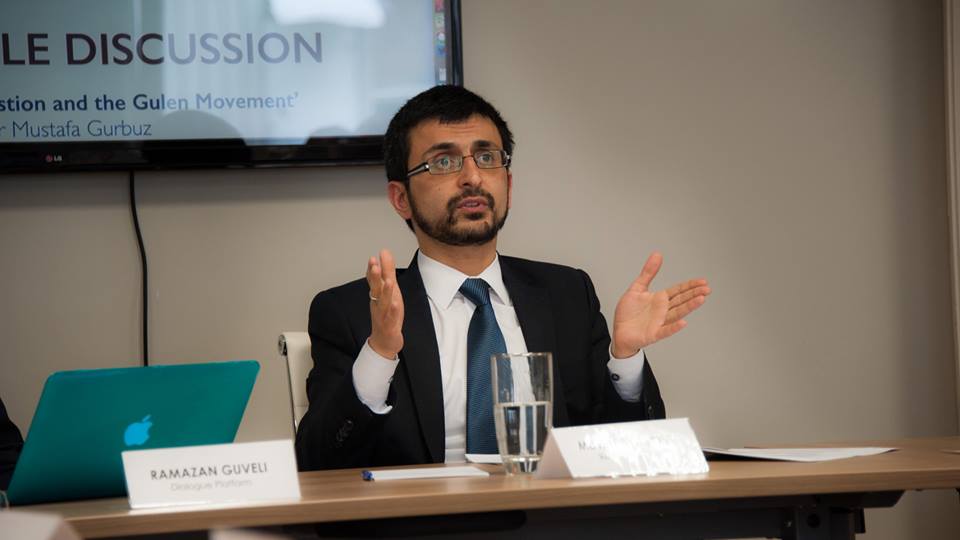Roundtable Discussion on “Turkey’s Kurdish Question and the Gulen Movement” with Dr Mustafa Gurbuz, Rethink Institute Washington DC
Tuesday, 12 May 2015 12.30-14.20
Dialogue Platform hosted a roundtable discussion with Dr Mustafa Gurbuz as the speaker where a selected group of 20 guests participated at its premise, Rue Montoyer 31 Brussels, on 12th May 20015.
Dr Gurbuz presented his recent report on “Turkey’s Kurdish Question and the Gulen Movement” and an hour of Q&A session followed up the presentation.
To summarise the report and the presentation, the following points has been raised:
– The Kurdish question poses a challenge not only to Turkey at large, but also to the Hizmet movement, which has a diverse following that includes a large number of Kurdish participants.
– By recognizing Kurdish identity, the Hizmet movement has taken a progressive attitude by supporting ethnocultural reforms in both discursive and institutional conduct.
– Educational and charitable efforts by Hizmet volunteers are aimed at removing prejudices in both Turkish and Kurdish constituencies, and accordingly, building social trust in the long run.
– Critics find Hizmet to be assimilationist. The main reason referred to by critics is the content of some TV shows in Hizmet-affiliated media.
– The AKP government’s attempt to shut down Hizmet schools in the region has accelerated disenchantment with the peace process among Hizmet participants.
– Hizmet participants find official talks with the PKK on disarmament acceptable with one caveat: Kurdish cultural rights should not be on the table with the PKK, since that would make the PKK “the” legitimate advocate of all Kurds.
– As long as the AKP government negotiates pro-Kurdish rights solely with the PKK, refusing to consult other civil actors including the Hizmet organizations, the movement’s constituency may remain skeptical about the peace process.
Dr Gurbuz noted “the Hizmet-affiliated media experiences serious difficulties in speaking to both its Turkish and Kurdish constituencies. The Kurdish issue is potentially a divisive issue, not only for the country, but also within the movement itself. One major challenge stems from strong support for the Hizmet movement among Turkish nationalists.
The movement recruited a large number of youngsters from Turkish nationalist parties such as MHP after the 1980s. Although these recruits were transformed by the movement and became more global in perspective, some form of nationalism has always been in place.
This reality was reinforced by Turkey’s increasing integration with the global neoliberalist system, which has revived a heavy nationalist tone in Turkish politics, including secular nationalism (ulusalcilik) and religious nationalism (neo-Ottomanism). As they are frequently portrayed as ‘pro-American’ and ‘pro-Israel,’ Hizmet participants often find themselves in need of highlighting their patriotism.”
To view and/or download the full report please click on the link.
Dialogue Platform holds regular roundtable discussion in similar kind of this topic and the future events could be followed in the events section.
About the guest speaker: Mustafa Gurbuz’s areas of expertise are Turkish politics and society; Kurdish politics; Sociology of Islam; Middle Eastern politics. He received his Ph.D. in sociology from the University of Connecticut and was a post-doctoral scholar at the University of South Florida. His doctoral dissertation, “Kurdish Ethnic and Islamic Mobilizations in Turkey: A Study of Rival Movements,” explores how social movement activists construct a competition culture after a long period of political violence. Dr. Gurbuz’s publications appeared in Research in Social Movements, Conflict, and Change, Middle East Critique, Journal of Muslim Minority Affairs, European Journal of Turkish Studies, and Research in Social Stratification and Mobility. Dr. Gurbuz is associate editor of Sociology of Islam and a contributing editor of Mobilizing Ideas. Dr Gurbuz is based at Rethink Institute in Washington DC.


Recent Comments